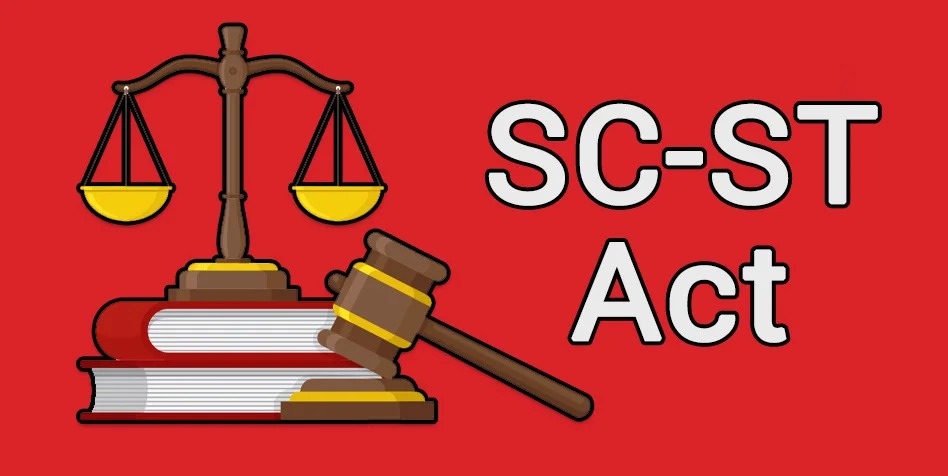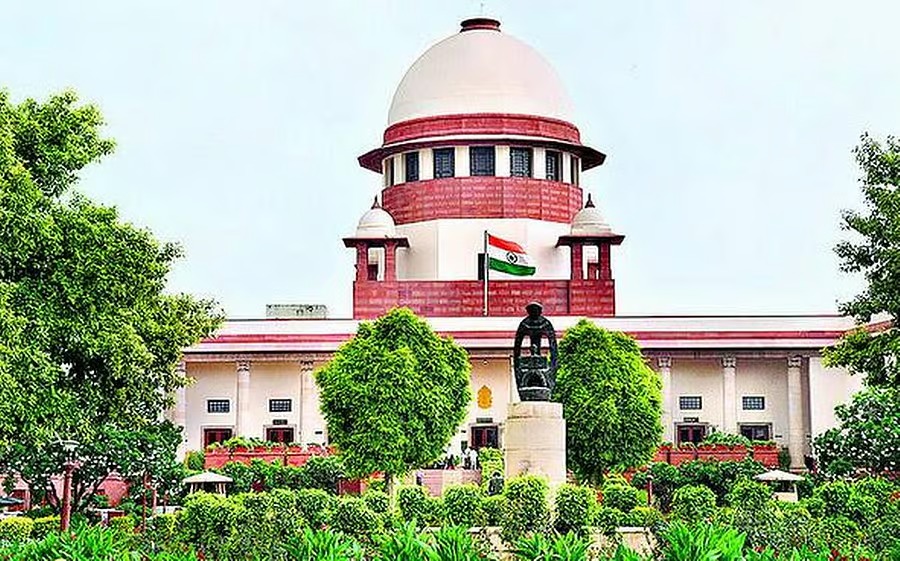R.N. Dutt, J.@mdashOn a prosecution report submitted by an Excise officer, the Chief Presidency Magistrate, Calcutta, took cognizance of an offence u/s 9(a) & (c) of the Opium Act alleged to have been committed by the opposite party. The case was then transferred to Sri B. K. Roy Chowdhury, Presidency Magistrate, for disposal. On a prayer on behalf of the opposite party for copies of statements of witnesses during investigation the learned Magistrate directed copies to be supplied to him. The State has obtained this Rule against this order of the learned Presidency Magistrate.
2. The facts are briefly: The prosecution report was in this case submitted by an Excise officer after investigation by him under the provisions of the Opium Act, and the Chief Presidency Magistrate took cognizance on the basis of this prosecution report u/s 20G of the Act.
3. The question for consideration is whether in such a case the accused is entitled to copies of statements of witnesses recorded during investigation. The accused will be entitled to copies if the case is to be tried u/s 251A of the Code of Criminal Procedure, or in other words, if the prosecution report on the basis of which cognizance was taken can be said to be a ''Police report'' within the meaning of Section 173(1) of the Code. This question came to be considered by this Court in Premchand Khetry Vs. The State, and this Court held that when an Excise officer makes an investigation under the provisions of the Opium Act and a Magistrate takes cognizance u/s 20G of the Opium Act on a prosecution report submitted by such an Excise officer, the prosecution report is not a Police report within the meaning of Section 173(1) of the Code and such a case cannot be tried u/s 251A of the Code. The facts of the instant case are on all fours with the facts of Premchand Khetry''s case. Here also investigation was made by an Excise officer under the provisions of the Opium Act and the Magistrate took cognizance u/s 20G of the Act on the basis of a prosecution report submitted by such an Excise officer. Premchand Khetry''s case further decided that even when a Police officer makes an investigation under the provisions of the Opium Act and a Magistrate takes cognizance on a prosecution report submitted by such a Police officer, the prosecution report is not a Police report within the meaning of Section 173(1) of the Code and the procedure to be followed in such a case is not the procedure as laid down in Section 251A of the Code, but the procedure as laid down in Section 252 onwards of the Code. The Supreme Court has now held in Ashiq Miyan and Others Vs. The State of M.P., that when a Police officer makes an investigation under the Opium Act and a Magistrate takes cognizance on a prosecution report submitted by such a Police officer u/s 20G of the Act, the procedure to be followed is the procedure as laid down in Section 251A of the Code. So, the decision of this Court in Premchand Khetry''s case (Supra) has to that extent been overruled by the Supreme Court. The Supreme Court made this decision in Ashiq Miyan''s case following its own decision in Amalshah v. State of Madhya Pradesh Criminal Appeal No. 201 of 1963, decided on December 11, 1964 (unreported). But the Supreme Court declined to express an opinion as to what procedure is to be followed when a Magistrate takes cognizance on a prosecution report u/s 20G of the Act submitted by an Excise officer after investigation under the Opium Act. It cannot, therefore, be said that the decision of this Court in Premchand Khetry''s case (Supra) to the effect that in such a case the procedure as laid down in Sections 252 onwards of the Code is to be followed has been set aside. But Mr. Dutt argues that this decision in Premchand Khetry''s case has been indirectly set aside by observations of the Supreme Court in Pravin Chandra Mody Vs. State of Andhra Pradesh, . There in that case a Police officer made an investigation in a cognizable offence and while making such an investigation he also investigated an offence u/s 7 of the Essential Commodities Act and then submitted a charge-sheet u/s 420 of the Indian Penal Code and u/s 7 of the Essential Commodities Act. The Supreme Court said in that case that where the Police makes an investigation in respect of a cognizable offence, it can also investigate a non-cognizable offence if they are alleged to arise from the same facts and such a case is to be tried in accordance with the procedure laid down in Section 251A of the Code even though the Magistrate takes cognizance of the offence u/s 7 of the Essential Commodities Act on a prosecution report. Premchand Khetry''s case (Supra) was cited in that case in support of the proposition that a prosecution report is not a Police report u/s 173(1) of the Code. True, the Supreme Court has doubted the reasoning of this Court in Premchand Khetry''s case and has said that such a report being a report in writing of a Police officer u/s 190(l)(b) of the Code is also a Police report u/s 173(1) of the Code and should attract the provisions of Section 251A of the Code. But we should remember that this point was not directly involved in Pravin Chandra Mody''s case (Supra) where the Supreme Court held that Police can investigate a non-cognizable offence while investigating a cognizable offence if they are alleged to arise out of the same facts and in such a case though cognizance in respect of an offence u/s 7 of the Essential Commodities Act was taken on a prosecution report u/s 11 of the said Act, the procedure for the entire trial would be the procedure as laid down in Section 251A of the Code. The question involved in Premchand Khetry''s case cannot, therefore, be said to have directly arisen in Pravin Chandra Mody''s case and, as such, though the Supreme Court has questioned the soundness of the basis of the decision in Premchand Khetry''s case it cannot be said that the Supreme Court has in Pravin Chandra Mody''s case overruled the decision of this Court in Premchand Khetry''s case. The basis of the decision in Premchand Khetry''s case is that though under the terms of the provisions of Section 20G of the Opium Act a prosecution report thereunder will have the fiction of being a report in writing of a Police officer u/s 100(l)(b) of the Code, it would not be a Police report within the meaning of Section 173(1) of the Code. Mr. Banerjee refers to the decision of the Supreme Court in Badku Joti Savant Vs. State of Mysore, where the Supreme Court has said that for the purpose of Section 190(l)(b) of the Code a report in writing by a Police officer must mean a report in writing by a Police officer properly so called and a Customs officer is not a Police officer and though u/s 21(2) of the Central Excise and Salt Act a Customs officer has powers of an Officer-in-charge of a Police Station when investigating a cognizable offence, the power is for the purpose of enquiry u/s 21(1) and the power does not include the power to submit a charge-sheet u/s 173(1) of the Code. It seems, therefore, that the fictional aspect of the matter has not been given a final go-by and the basis of the decision of this Court in Premchand Khetry''s case (Supra) does not appear to have been wiped out. Mr. Dutt, however, refers to the subsequent Supreme Court decision in Raghubans Dubey Vs. State of Bihar, and argues that once cognizance is taken u/s 190(l)(b) of the Code the procedure for a Sessions enquiry will be u/s 207A and similarly the procedure for a warrant trial would be the procedure as laid down in Section 251A of the Code. It appears, however, that in that case investigation was made by a Police officer and charge-sheet was submitted u/s 173(1) of the Code. What was decided in that case was that a Magistrate takes cognizance of an offence and so even if no charge-sheet is submitted against a particular person the Magistrate can proceed against that person also. This case does not consider the question as to what procedure is to be followed when an investigation is done by an Excise officer under the Opium Act.
4. Thus, we hold that even now the decision of this Court in Premchand Khetry''s case (Supra) that a prosecution report submitted by an Excise officer u/s 20G of the Opium Act after investigation under the provisions of that Act is not a Police report within the meaning of Section 173(1) of the Code and in that view of the matter we hold that the procedure to be followed in the instant case is the procedure as laid down in Section 253 onwards of the Code ; and the result is that the accused is not entitled to copies of statements recorded during investigation.
5. The Rule is, therefore, made absolute. The order of the learned Magistrate for supplying copies of statements to the accused opposite party is set aside. The records be sent down at once. The learned Magistrate will now proceed with the trial in accordance with law.
A.P. Das, J.
6. I agree.

